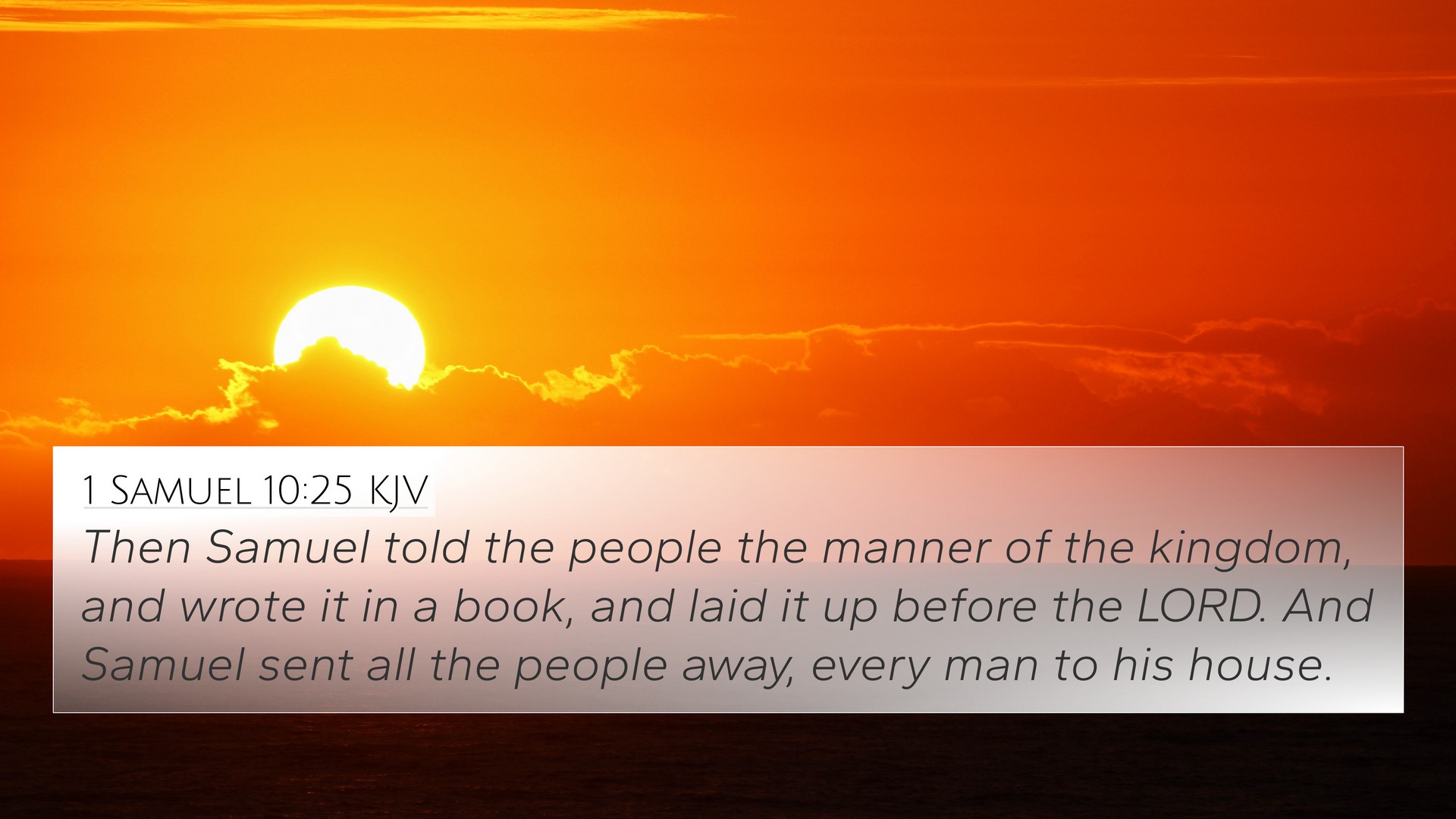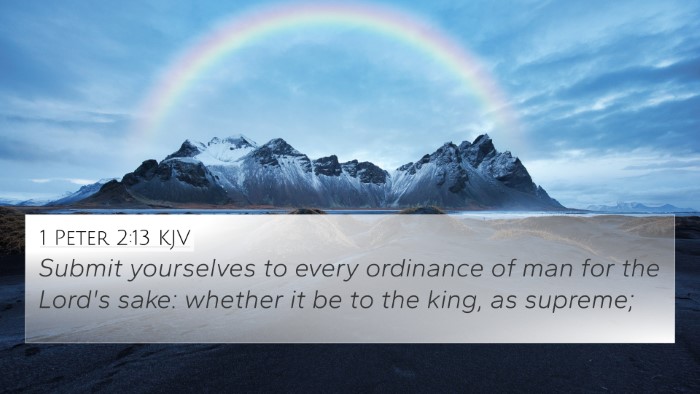Understanding 1 Samuel 10:25
Verse: "Then Samuel told the people the manner of the kingdom, and wrote it in a book, and laid it up before the Lord. And Samuel sent all the people away, every man to his house." (1 Samuel 10:25)
Overview of the Verse
This verse captures a pivotal moment in Israel's history, marking the establishment of monarchy under King Saul. Samuel, the prophet, plays a crucial role in communicating the regulations and expectations that accompany this new form of governance.
Commentary Insights
Matthew Henry's Commentary
Matthew Henry emphasizes that Samuel’s actions reflect both spiritual and civic responsibilities. By documenting the manner of the kingdom, Samuel affirms the seriousness of kingship and the need for the people of Israel to understand its implications. He notes that the book signifies God's initial instructions about the kingly office, underlining the importance of divine guidance in human governance.
Albert Barnes' Commentary
Albert Barnes elaborates on the implications of “the manner of the kingdom,” indicating that it includes laws and regulations designed to guide both the king and the people. Barnes suggests that the laying up of this book "before the Lord" is symbolic, as it demonstrates the acknowledgment that the authority of the king is ultimately answered to God. It reflects a commitment to uphold God’s laws even in the human institution of monarchy.
Adam Clarke's Commentary
Adam Clarke provides a broader context by discussing the transition Israel faces from a theocracy to a monarchy. Clarke notes that in laying the laws before the Lord, Samuel illustrates that the institution of a monarchy is not without divine order; it should operate under God's authority. This sets precedence for the relationship between rulers and divine guidance, encouraging future leaders to depend on God for direction.
Thematic Connections
The verse also opens pathways to deeper understanding through thematic Bible verse connections:
- Deuteronomy 17:14-20: Outlines the regulations for a king in Israel.
- 1 Samuel 8:4-9: Discusses Israel's desire for a king and God's warning regarding it.
- Psalm 72: A prophetic psalm regarding just governance and prosperity under a righteous king.
- 1 Kings 2:3: Motions David's charge to Solomon about keeping God's commandments.
- Proverbs 21:1: Discusses the king's heart being like channels of water in the Lord’s hands.
- Ezra 7:14: Talks about king's authority to appoint magistrates and judges based on God's law.
- Romans 13:1-7: The New Testament elaboration on the concept of governing authorities being instituted by God.
Cross-Referencing Biblical Texts
This verse and its interpretation can further be understood in relation to other substantial scriptures. The thematic inter-Biblical dialogue helps to synthesize the concepts of divine authority and the role of leaders. Understanding these connections through comparative Bible verse analysis reveals a consistent biblical principle: God remains sovereign over the institution of human governance.
Cross-References for 1 Samuel 10:25
- 1 Samuel 8:10: Samuel warns the people about what a king will demand from them.
- Exodus 18:21-22: Guidelines for choosing leaders within Israelite society.
- Matthew 28:18: A reminder of Jesus’ authority in commissioning leaders within the church.
- Hebrews 13:17: Instructions about obeying church leaders as those who watch for souls.
- Acts 1:24-26: The apostles casting lots to decide who would replace Judas, relying on God’s direction.
- Luke 4:18: Jesus’ proclamation of His mission as a king with divine authority.
- Colossians 1:16-17: Affirms Christ's supremacy in all authorities and realms.
Final Thoughts
In sum, 1 Samuel 10:25 provides rich insights into the foundations of political authority in Israel, establishing a framework that connects secular governance with divine oversight. As one studies this verse and cross-references it with others throughout the Bible, one can appreciate the overarching theme of the sovereignty of God over all human institutions. These connections serve not only for individual study but also become essential tools for Bible cross-referencing, enhancing understanding and providing depth for Bible study sessions and sermon preparations.










